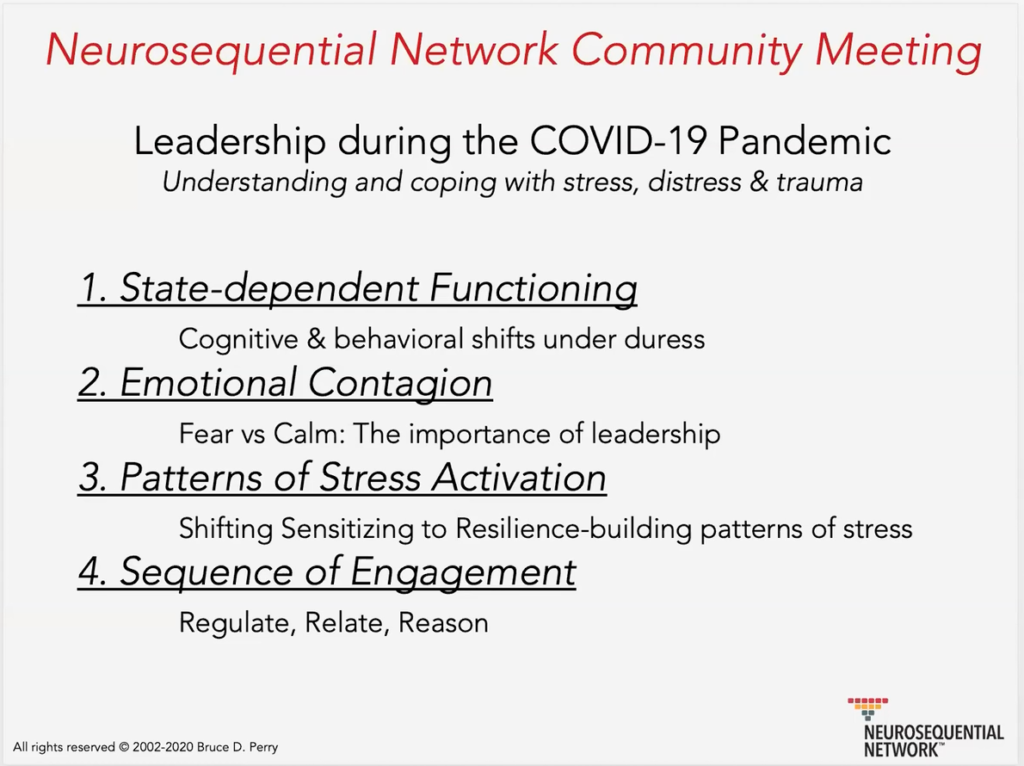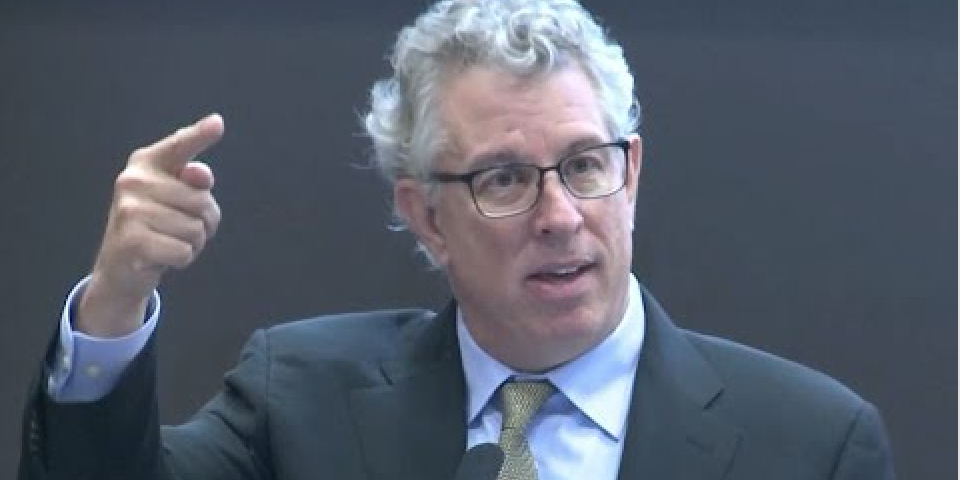The COVID-19 outbreak has created a need to help our community heal, become better informed, and manage the stress, anxiety, and other challenges that have resulted. Our Flawless advisory board member Dr. Bruce Perry recently hosted a live webinar to help build important connectivity within our community, as well as to share some tips to help us all regulate during this time.
There are four core principles that Dr. Perry used to lead this webinar: State-Dependent Functioning, Emotional Contagion, Patterns of Stress Activation, and Sequence of Engagement. Dr. Perry introduced and explained these core principles in detail before showing participants how they apply to current sources of stress such as media overconsumption and social distancing.

Over Consuming Media
There’s productive stress, and there’s harmful stress. Truthfully, we put ourselves in stressful situations every day, but in manageable doses: when you’re exercising, you’re being stressed. It’s the quantity and type of stress that determines whether the stress will lead to dysregulation and trauma rather than building resilience. Right now, a common source of harm-inducing stress is the overconsumption of media, specifically Coronavirus-related news and updates.
Dr. Perry outlined the composition of our brains and provided a basic understanding of the processes of the brain: the reflexive and the emotional parts (the ‘lower’ parts), and the ‘higher’ parts that help with executive functioning, decision making, and keeping yourself calm. When you’re not uncomfortably stressed, information is processed through the ‘higher’ part of your brain. But when you’re under harmful amounts of stress, information is instead processed through the ‘lower’ parts of your brain that are more reflexive and emotional.
When you watch upsetting news for too long, your brain starts listening more to the threatening parts than to the factual parts of the information provided. Once this fear response kicks in, it can cause tremendous dysregulation, and it is hard to be rational and think clearly when you are dysregulated. This is the cause of a lot of the extra anxiety that is arising amongst individuals. Dr. Perry recommends you find a system to keep you informed – but not overwhelmed with information – such as checking reputable sources of news only once or twice a day at set times.
Social Distancing
We as humans are social beings, so social distancing has been a topic of concern for many. Being connected and feeling like you have a sense of belonging makes you feel safer, and that can be as simple as seeing a familiar face or people smiling. To emphasize the value of connection, Dr. Perry discussed the damaging effects of solitary confinement in our criminal justice system as well as how isolation impacts those with health risks by making their symptoms worse. So at a time where we have to be socially distant from one another, we have to find alternative ways to be connected. Whether that is video chat, phone calls, or texting, having a connection helps with regulation. This is vitally important for the demographics that are particularly vulnerable right now, including older adults and people with pre-existing challenges. If you know someone at-risk, Dr. Perry recommends that you intentionally reach out and connect with them. And if you’re someone who is particularly busy, this does not have to be a 45-minute conversation; in fact, a therapeutic dose can be as simple as a 3-minute call.
Dr. Perry emphasized that those in the Neurosequential Network Community are the leaders that can use this knowledge and information not only to regulate ourselves, but our family, community, and culture. It is time to recognize the unique position many of us are in during this pandemic because of how we understand stress and how to stay regulated when things become overwhelming.
Dr. Perry ended by saying “don’t underestimate your power to help other people by helping them regulate, and then once they’re regulated, sharing your knowledge and resources.” His theme of the day was to be a leader. So let’s commit to being leaders every day and getting through this together. This is just the first of multiple educational events that Dr. Perry and the Neurosequential Network Community plan to hold during this crisis. To check out the recording of the first session, click here!







